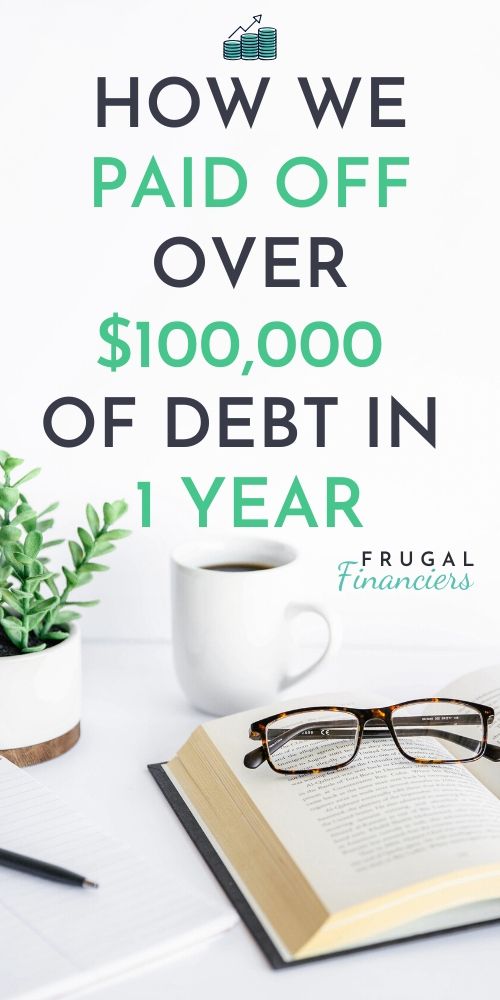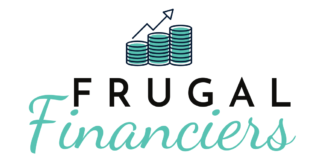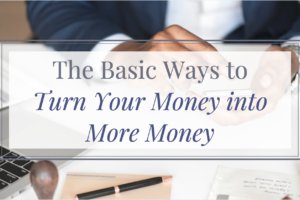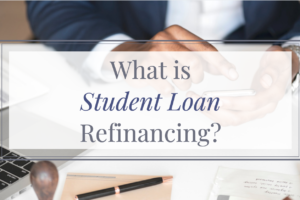Paying off debt isn’t much fun until you’ve actually paid it off.
Then you have a bunch of extra money.
We paid off our debt in one year which was pretty tough and difficult but extremely rewarding afterward.
It took a lot of sacrifices and we had to change a lot to accomplish the goal.
However, it is possible if you follow some common tips to pay off your debt.
You can even use our story as a guide for you as you pay off your debt.
Why We Were in Debt
A big reason why we were able to so quickly pay off our debt was the reason why we went into debt.
To go back to school to get a better paying job.
An MBA with a focus in finance led to a job at a Wall Street investment bank which paid pretty well.
That was a big reason why we were able to pay off the money so quickly.
We knew that investing in an education that led to a salary 3 times larger than the debt would allow us to quickly repay the student debt.
However, this isn’t always the case.
It’s important to understand the value of education. It can be undervalued but it can also be overvalued.
So, that’s why we were in debt. Good old student loans.
If you’re in debt because of overspending, you’re going to have to first fix your spending habits before you can think about paying off debt.
We had pretty good spending habits but we wanted to pay off the debt as fast as possible.
So our first step was looking at how we spent and where we could cut back too.
We Started Tracking our Spending
After getting the job, we were making more money than ever.
It could have been easy for us to spend that money but we were super focused on paying off our debt.
So, we started really looking at where we were spending money the most.
We first split up our expenses into essential and nonessential.
Since essential spending is mostly fixed, it’s a good idea to see how much spending you can actually reduce.
After that, we categorized our spending into 5 categories.
- Home
- Groceries/Toiletries
- Personal
- Entertainment
- Other
We wanted to keep it simple so that we didn’t have to spend too much time tracking our spending and figuring everything out.
With some spending categories created the next step was a budget.
If you need some help categorizing and track your expenses, check out our posts:
We Created a Budget
Some people say to pay yourself first when it comes to saving money and paying off debt.
While we like that idea, it doesn’t always work out in practice.
Instead, we like to set reasonable spending goals in our budget and then figure out how much money we have leftover for paying off debt and investing.
We did just that while we were paying off debt and still continue to use the same budget.
Going back to keeping things simple and less time-involved.
We created a quarterly budget (find out why here).
There’s just no time to do a budget every month.
Plus monthly budgets are not that useful.
Every month is different and just because you do good one month doesn’t mean anything.
With a quarterly budget, we get a view of our spending over 25% of the year. That’s pretty substantial.
And, all of the noise from random expenses is smoothed out.
If you need to create a budget, we strongly recommend using a quarterly budget.
After creating the budget, it was about figuring out how we were going to pay off our debt.
We Created a Debt Payoff Plan
We knew how much money extra each quarter we would have to pay off debt but we still had to figure out the fastest way to pay off the debt.
A new student loan was dispersed each year and at a different interest rate.
So, we had to figure out the order in which we would pay off the loans.
With the new finance knowledge, we knew that paying off the loans with the highest interest rates first would save us money and time paying off debt.
We put all of our debt information together on one sheet with all the important information like monthly minimum payments and interest rates.
After that, we created a plan for how long it would take us to pay off the debt.
Creating the plan was super helpful because we knew exactly what to pay each month on each loan.
The plan was also helpful because it kept us motivated paying off the debt.
We watched as the amount in interest we paid each month dropped.
Also, we knew the exact date when we would pay off our debt.
It really helped when we were thinking things like: what’s the point of paying down all of this debt.
We Did No-Spend Challenges
Have you ever done a no-spend challenge? Check out our #SAVEMORE 4-week Challenge by signing up to our email list below.
At first, we were a bit skeptical about the process but by the end, we were big-time fans.
Our first no-spend challenge was a month of no eating out.
No restaurants. No coffee shops. Not even taco stands.
It was tough.
We realized how much we ate out just because we didn’t have anything in the fridge and didn’t know what to make to eat.
Over the month-long no-spend challenge a lot more happened than just saving some money.
First, we started establishing really good habits.
Making every meal at home forced us to plan out meals, find new meals to eat and get in the habit of eating at home.
This didn’t go away after the no-spend challenge ended.
We kept making food at home more often than before the challenge.
So, a good habit (eating at home) replaced a bad habit (eating out).
Instead of just saving money that month of not eating out, we continued to eat out less than before and saved even more money.
No-spend challenges are great for resetting your habits.
Check out our post on no-spend challenges where we talk about different no-spend challenges you can do.
We Paid as Much as We Could Towards Debt
Managing your money is a balancing act.
You want to save money for the future and pay off debt but you also want to buy stuff you want and do the activities you like to do right now.
We chose to tip the scale very much in the direction of paying off debt.
Not going to lie. There were times when it was no fun.
The feeling of making a debt payment just doesn’t really feel as good as buying some new shoes or going on vacation.
We chose to sacrifice a lot over that year because we wanted to pay off our debt.
The faster you want to pay off your debt, the more you’re going to have to sacrifice to do it.





Leave a Reply
Your email is safe with us.
You must be logged in to post a comment.